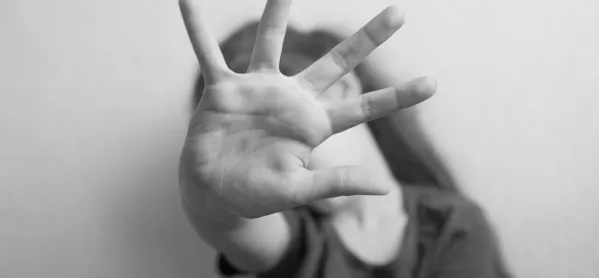Teachers need extra training to educate pupils about healthy relationships and consent, a charity has said after the number of children who reported being forced into sex rose by 16 per cent in a year.
Childline delivered 4,500 counselling sessions in 2018-19 to children who reported being sexually abused, with the youngest caller aged 9.
News: More pupils seeking support over peer sex abuse
Related: Exam pressures fuel rise in Childline calls about mental health
Peer abuse: What it is and why schools need to act
Most children called because they had been forced to perform or watch sexual acts. Some were persuaded to send nude images or videos of themselves, with abusers threatening to share these with the child’s friends or family.
The NSPCC, which runs Childline, is calling on the government “to provide proper training to teachers so they can deliver effective and relevant lessons about healthy relationships, consent and sex; and support young people to get help from a trusted adult”.
And the NAHT headteachers’ union said teachers needed more support to feel confident when delivering relationships and sex education (RSE), so that they could better safeguard children from potentially dangerous online friendships.
Paul Whiteman, general secretary of the NAHT, said: “Young people need to be taught about healthy relationships, consent and how to keep themselves safe, in an age-appropriate way, before they start to go looking for answers. Otherwise, as is the case now, too many of them will get bad and even harmful information from the internet or from their peers.”
“It is absolutely right that the government has made lessons on sex, relationships and health compulsory for all schools. The next step is to make sure that teachers are confident and know they have the right skills to teach this content effectively.”
“It is crucial that the government provides teachers with sufficient training and resources, well before they have to start teaching the new curriculum, to give all schools enough time to prepare the best lessons. This really is too important a subject to get wrong.”
In more than a third of Childline’s counselling sessions last year, young people said they were targeted online - usually through social media or playing video games - often by their peers or people known to them.
And sexual exploitation featured in over half of the 8,841 counselling sessions on sexual abuse. Exploitation included being offered gifts or affection in exchange for sexual activity.
One 15-year-old girl reported feeling suicidal after being exploited by a gang of boys.
“I never thought I would ever be the sort of person who could be sexually exploited,” she said. “One day, I met up with some boys and they made me feel worth something. It started off small, complimenting me, stroking my hair.
“One day, one of them started kissing me so I pushed him away and said no, but he wouldn’t stop. I ended up having sex with him because I was scared about what would happen if I said no. This pattern continued between the gang. I didn’t see a problem with it until school found out and told me what was happening was a crime.”
The biggest increase was in the number of 16- to 18-year-olds seeking help for sexual exploitation, which had risen by a quarter since the previous year.




